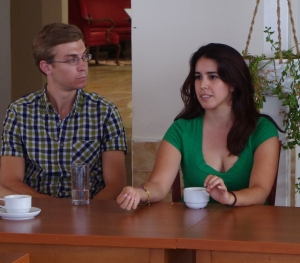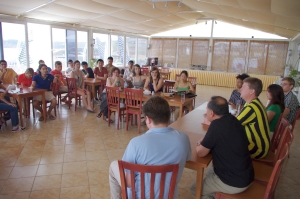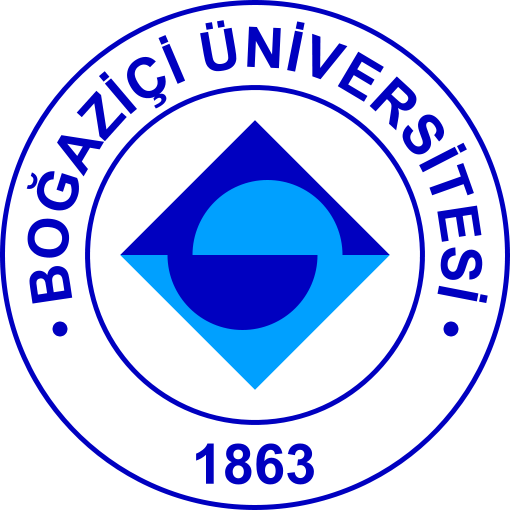 Jonathan Bernard and Ana Enriquez Jonathan Bernard and Ana Enriquez
Panel Co-chairs |
The panel discussion for the 12th International Summer School on Biocomplexity and Biodesign: Gene to System was held on June 28th, 2013. The panel discussion contained a dynamic mix of students and faculty, and was largely centered on the current trends in biomedical engineering and the future directions of the field.
A particular stimulating discussion topic, and one that dominated much of the conversation, focused on the future direction of the field. The recent advancements in technology, particularly 3D printers and cloud computing, were seen as prominent agents for revolutionary change. Students and professors alike believe the abilities of 3D printing will revolutionize tissue engineering, and allow precise creation of patient-specific tissues. The ability of cloud computing to streamline healthcare records and allow for extensive, highly-accessible databases for physicians and researchers alike will help broaden the collective knowledge and discover previously unforeseen trends. Strong encouragement by the panel was made for the students to pursue these avenues, while maintaining creativity to pursue the next large idea.
|
The appraisal for creativity, a panel-noted need for future generations, was the next topic of conversation. The faculty panel noted that many of the breakthrough technologies came about through unforeseen results. The faculty noted that these inventors were creative and smart enough to recognize the potential in these unexpected results, and to pursue them fully.
Future employment was the next discussion, and centered on the differences between the expectations of an industry position versus a position in academia. Even though our panel lacked a member with extensive industry experience, the panel commented on the similar attributes needed to be successful in both fields. A key component mentioned by all members of the panel was the international aspect of research and development, and the ability to participate in multi-cultural work places is a must for future generations. Particular praise was lavished on the Summer School on Biocomplexity and Biodesign, as this environment served as a networking event for multinational, multicultural, and multidiscipline current experts and prodigious talent in the field. One panel member strongly urged the ability to individually develop ideas and execute them, as he saw the need for effective and visionary leadership as a huge need in this current generation and those to come.
Lastly, a diverse discussion centered on translation research and the entrepreneurial opportunities within the field. The panel noted the reduced government funding for research, and the need for translational applications to be successful in the funding process. Likewise, others noted, the defined need in healthcare and the translatable nature of current research has created a ripe field for those entrepreneurially inclined. To succeed in this environment, it was noted that a high technical ability was needed, but also a determination and an ability to network with fellow peers. A certain distinguished member of the conference also greatly encouraged a few of the students to pursue and be successful entrepreneurship, so that they could generously provide for future iterations of the summer school.
The faculty panel closed the discussion with a word of confidence and support for the students. They mentioned the ability and intelligence of the students, and their belief in the capable hands of the future generation.
|
 Jonathan Bernard and Ana Enriquez
Jonathan Bernard and Ana Enriquez

